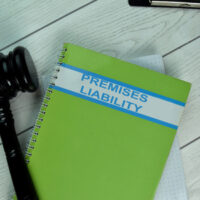Stay Safe In The New Year: Avoiding Accidents While Out & About

Despite the COVID-19 pandemic and the need to stay indoors as much as possible, many Floridians are intent on making and working on New Year’s resolutions. Some of the most common will take people far from their homes, such as traveling, exercising more, and spending more time with family and friends. While it is generally not recommended to go out and do things as if the pandemic has ended, it is always a good idea to be extra vigilant while you are out – not just for the virus, but also in the event of an accident, it is a good idea to understand who might be liable.
Different Standards Of Care
When you visit sightseeing attractions, gyms, or other places in the state, Florida law requires that proprietors maintain those properties in a reasonably safe way. However, the standard of care in terms of exactly what level of caution is owed will differ, depending on which type of visitor you are held to be. Florida recognizes three tiers of visitors, and a business/property owner owes a different standard of care to each type. They are:
- An invitee can be a business or public visitor. A business invitee is allowed onto premises for some reason relating to business with the landowner (for example, a customer at a store), while a public invitee is invited onto the premises specifically as a member of the public, for any reason that the land would be available to the public in general. A common example of a public invitee would be someone visiting a public park to run or bicycle on its trails.
- A licensee is allowed to be on someone’s premises for their own “convenience, pleasure, or benefit.” A common example of a licensee is a neighbor coming over to your house to retrieve something that has fallen into your yard.
- This is fairly self-explanatory; a trespasser does not have permission to be on someone’s premises, but is there regardless.
Which Duty Of Care?
A Florida business or property owner owes an invitee two specific duties: namely, to try and make their premises as safe as possible, and to warn the invitee of any dangers they could not fix. For example, if you visit a gym where construction is being done, the owner has an obligation to both warn you of the potential danger, and to minimize the potential risk. However, a licensee is only entitled to a warning about dangers that may not be obvious, and trespassers are only entitled to have the property owner refrain from intentionally injuring them.
If you have been involved in an accident on someone else’s premises, you must establish your status on the premises – which in turn establishes the duty of care owed to you – and show that the duty of care was breached by the defendant owner’s actions (or lack thereof). Be advised that if your accident involves a slip-and-fall on someone else’s premises, Florida does have statutory law that requires the injured plaintiff to establish that the business had actual or constructive notice of the potentially dangerous substance. This can make it much more difficult, though not impossible, to prevail in this type of case.
Call A Tampa Premises Liability Attorney
When you venture onto other people’s land, you are owed a certain duty of care, to try and keep you from meeting with an accident. If you do not get that care, you have the right to seek redress. The Tampa premises liability attorneys at the Rinaldo Law Group can help answer any questions you may have about a potential cause of action. Contact our offices today for a free consultation.
https://www.tampainjuryaccidentlaw.com/pip-coverage-outside-your-own-car/












